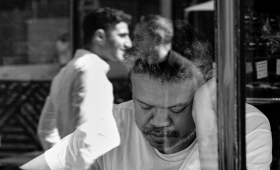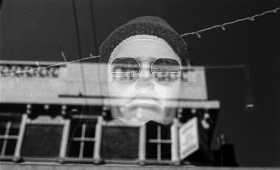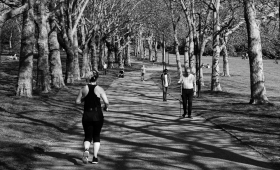by Jan Woolf
Any written response to Hydar Dewachi’s art needs to go beyond the review, and it certainly doesn’t need obfuscating, post-modern analysis; ‘art bollocks’ to you and me. Nor does it need to describe the photography; which has an edgy beauty and speaks not just for itself, but for us. The artist photographer reflects our state back at us through the chosen images. From his large body of work, the most resonant is his Covid Trilogy –
- Noble Trees Blues
- Wahda
- Lull
Noble Trees Blues is a collection of black and white photographs of Gladstone Park – a green lung situated between Cricklewood, Dollis Hill and Willesden in North London. I know this park well. It was the exercise yard of the good folk of NWTwee (only joking) during lockdown. And so we – in groups, pairs or alone, with our flasks and sandwiches noticed stuff, registered the crark of the parakeets. Noticed too, how in the early days the polluting fug had lifted over the city as the air was purer. We related differently to the place, became intensely aware of the trees, watched other people – paid attention. For if you pay attention it will pay you back. Noble Trees Blues locates individuals in the calming accompaniment of trees. Trees, as we are now learning, communicate with each other through a network of underground fungi. They do not stand alone, and neither do we; we seek them and each other out. We need alignment with nature for frictionless existence with it. Maybe Covid has taught us this.
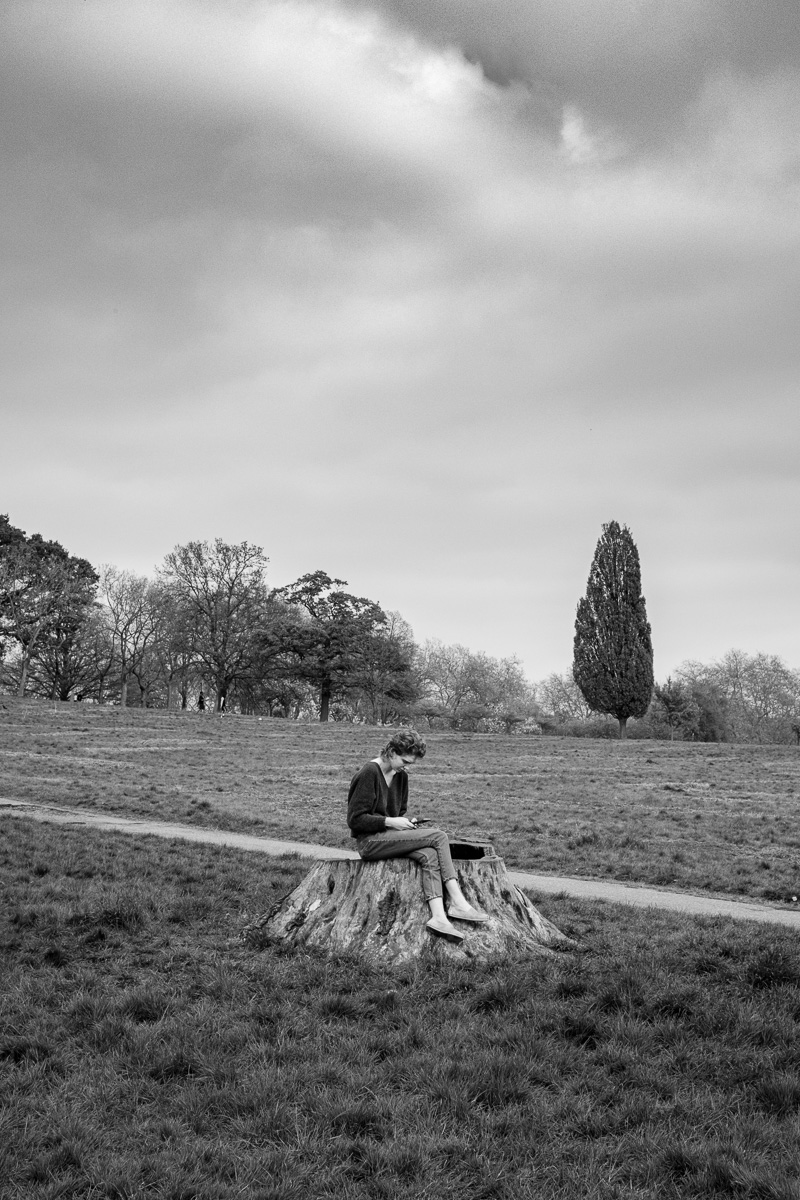
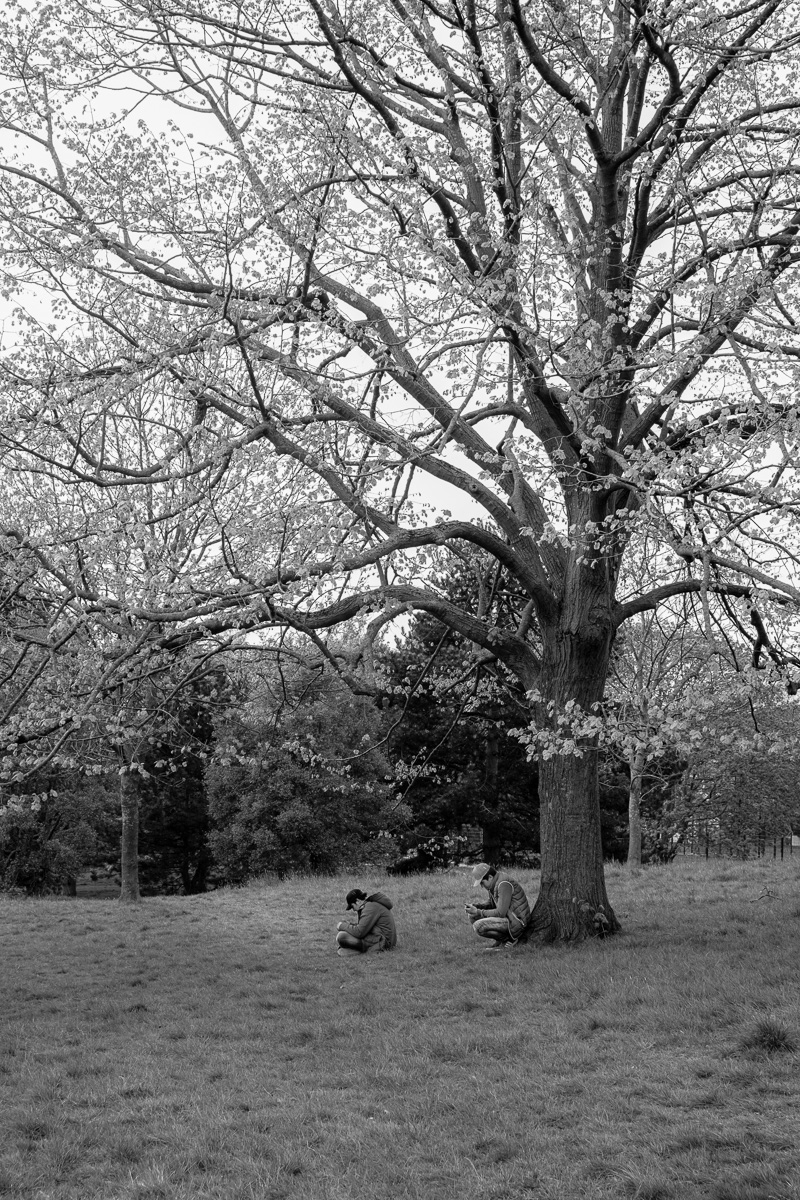
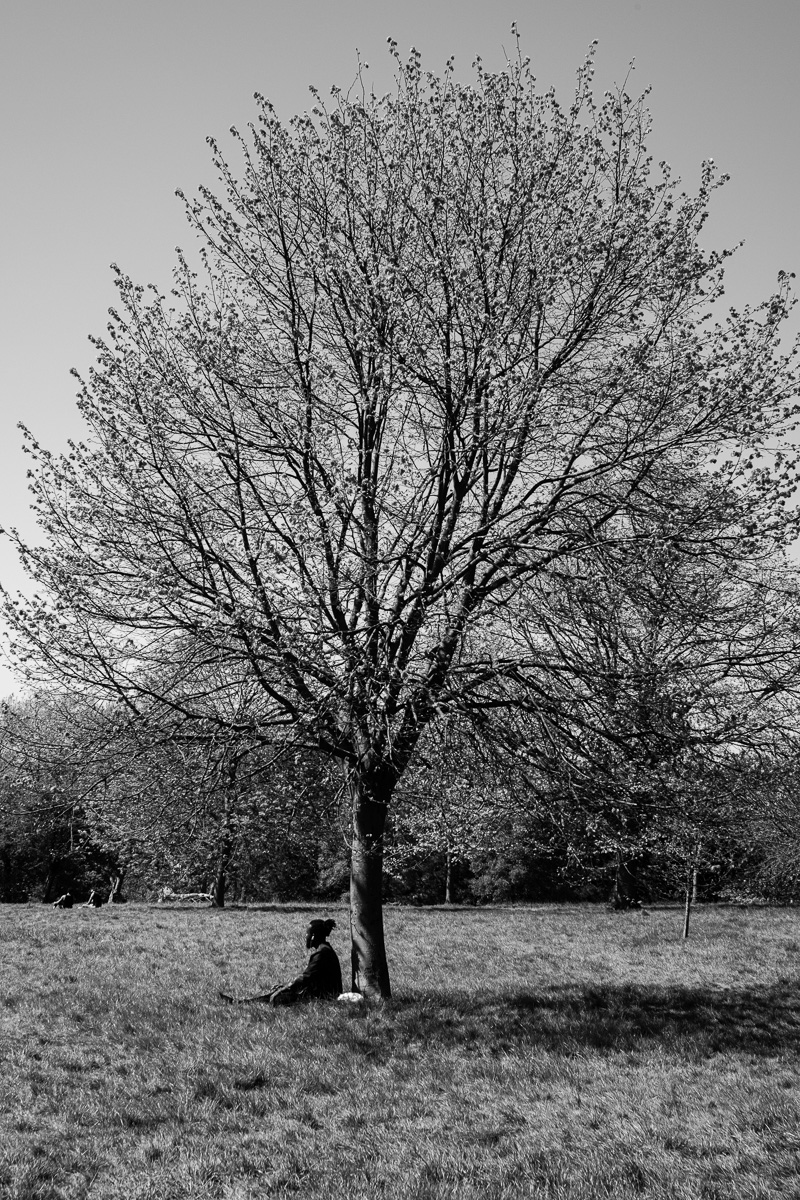
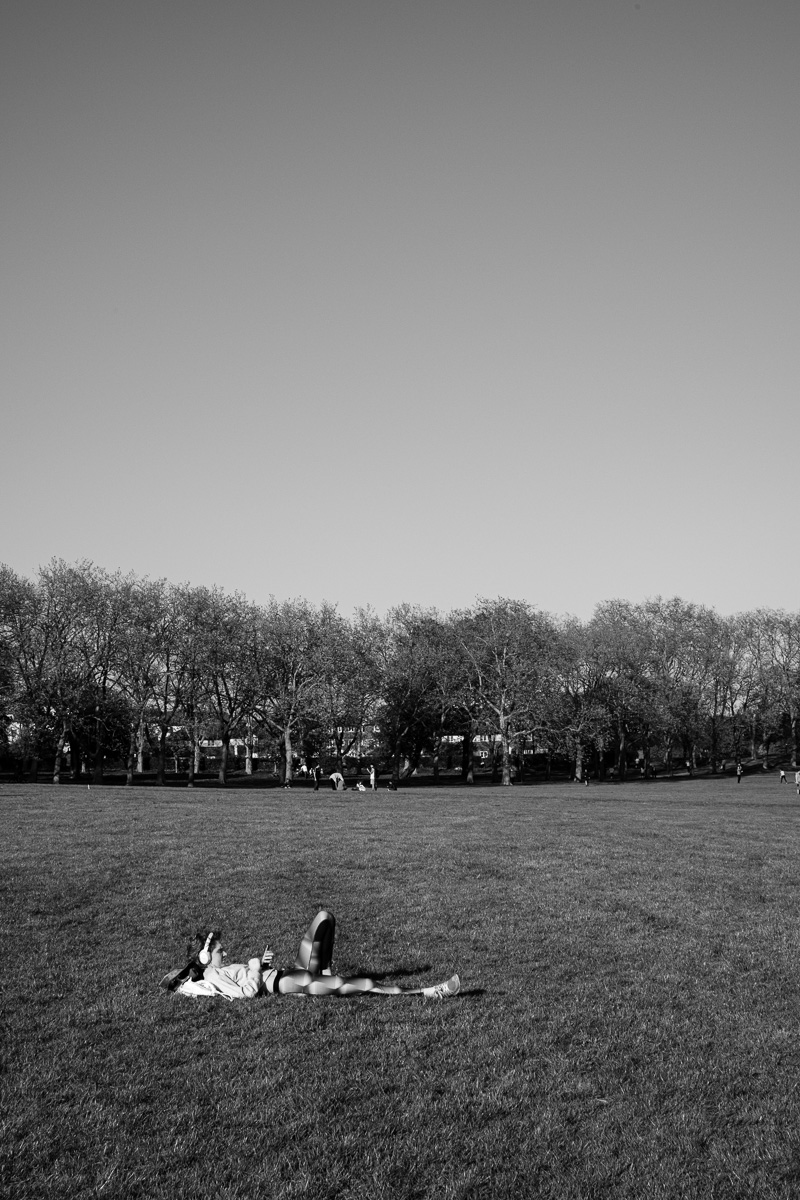
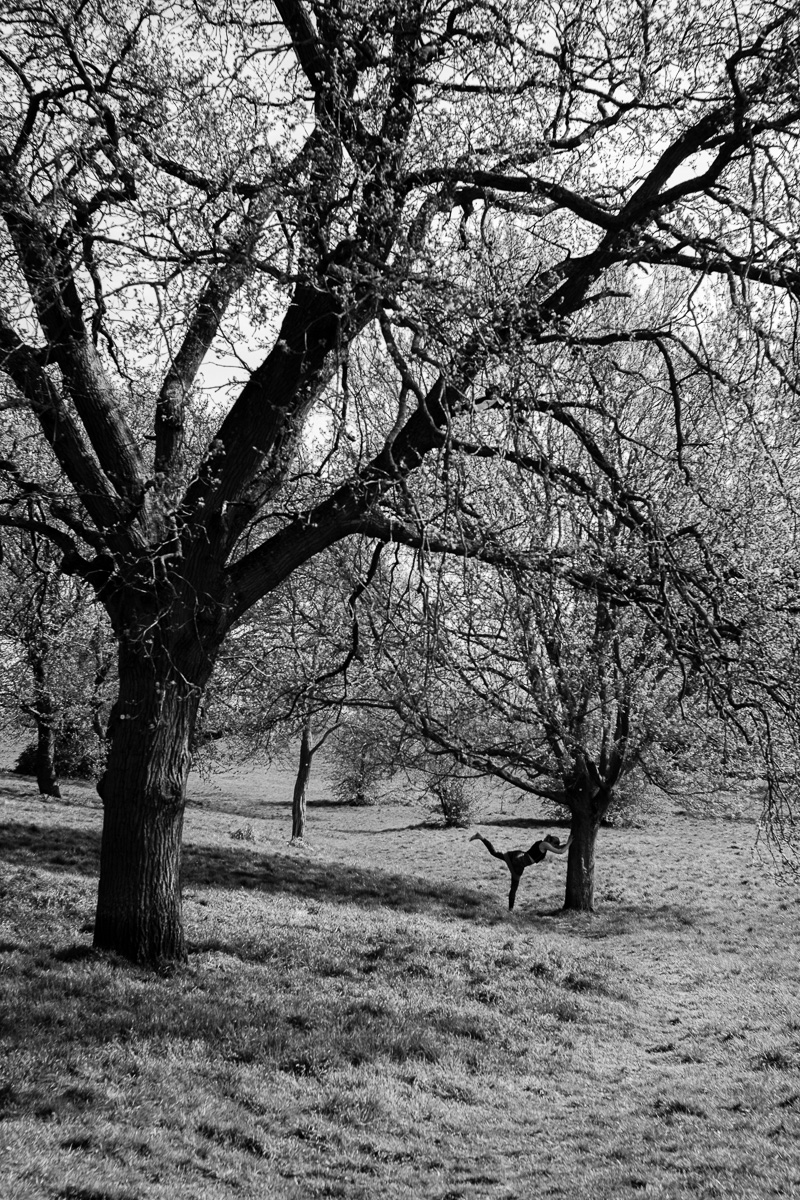
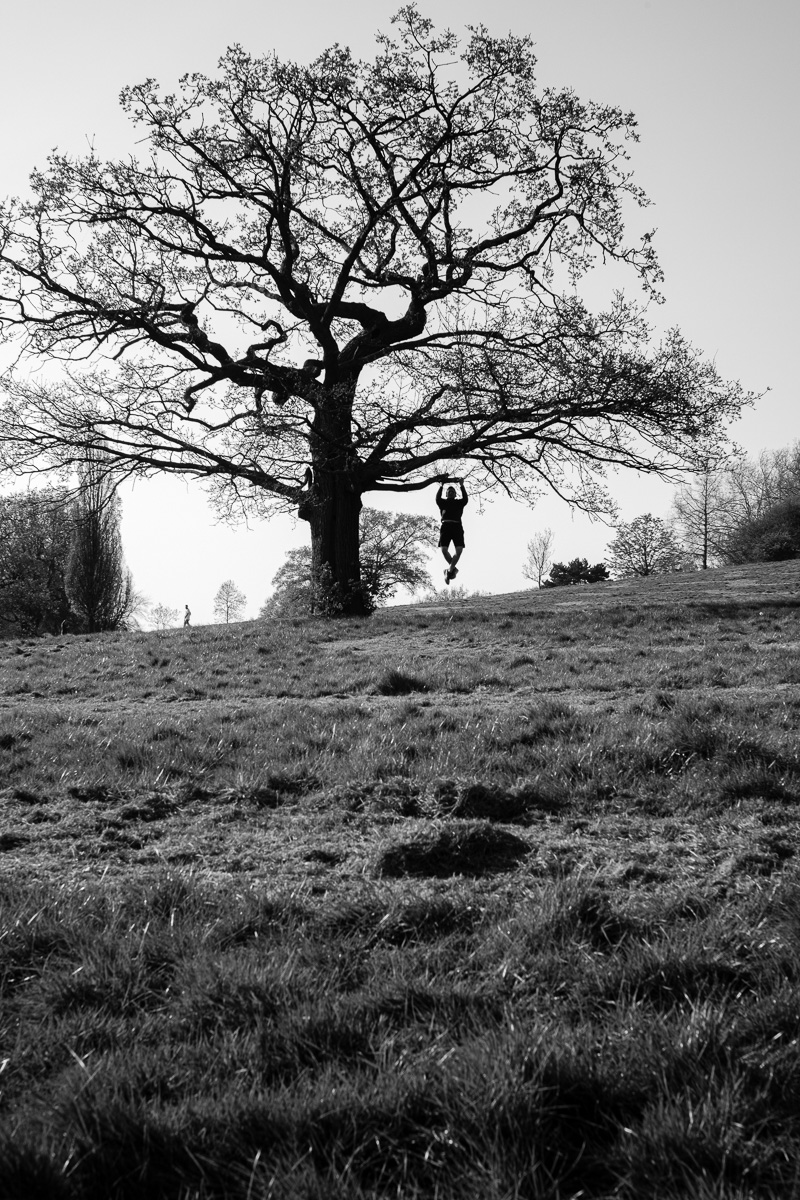
Wahda – photographs of Soho, London evoke other networks. Are these solitary people behind the glass fronts of cafes, juxtaposed with reflections of the busyness of the streets, as alone as they seem? They’re formally lovely photographs that obey aesthetic principles, yet don’t aestheticise the subject matter. They appear, like Edward Hopper’s paintings, to be studies in loneliness – but Hopper’s people didn’t have the internet – and so from the Wood Wide Web to the World Wide Web. To quote Dewachi ‘A new sort of retreat to connect with a universe wider and more far reaching than the one around us: the Social Media.’
Is this is good thing? The question hangs in the air. For some it is, but for others this electronic connection might be exacerbating loneliness, despite – or because of – its reach. Pheromones, the love chemical can only be transmitted in real space. (Just saying). Phones and laptops are addictive as we search out networks and connections, like the fungi connecting trees.
Wahda in Arabic means solitude/loneliness or unity/union. This is interesting, as in Eastern philosophies, the only way to be one with the Creator/Nature, is to retreat from the world to connect with the universe. And here’s the contradiction; when you achieve that, you are not alone. This has profound significance for our times. We are humans in a situation. Only we are getting Covid, yet nature is there – possibly thriving, waiting for us to align.
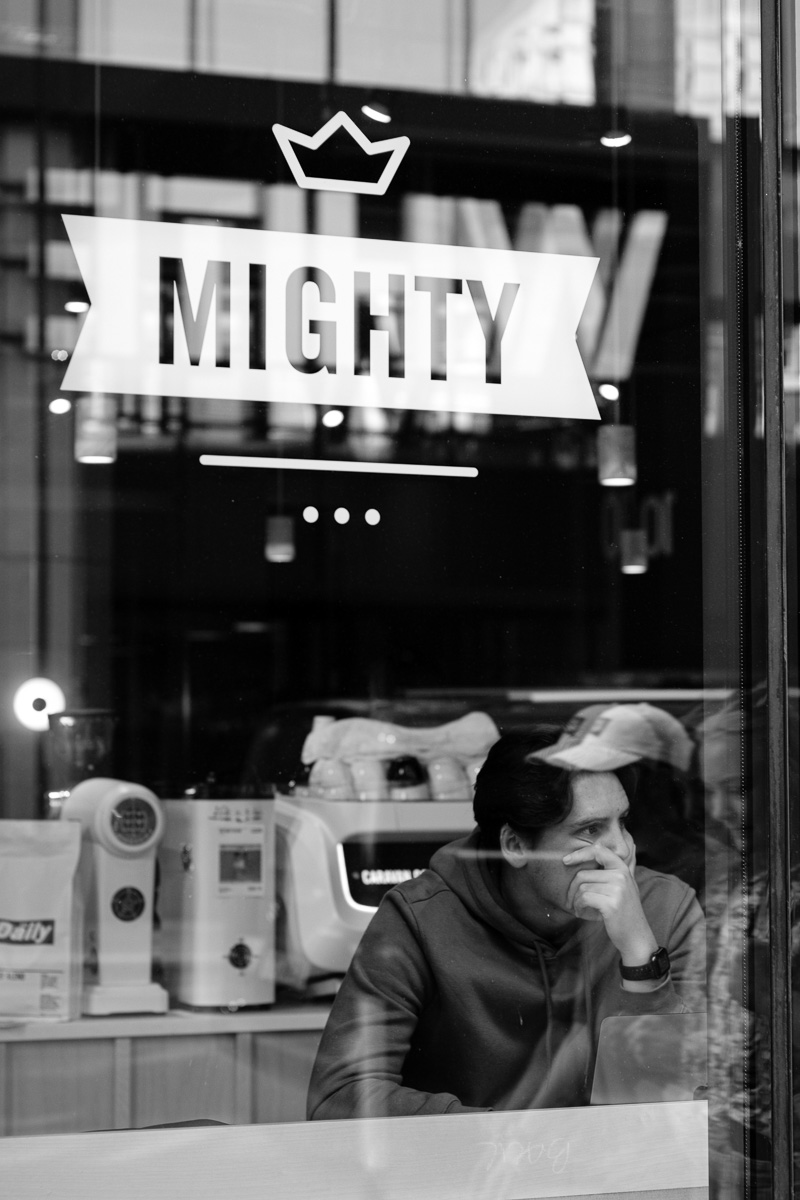
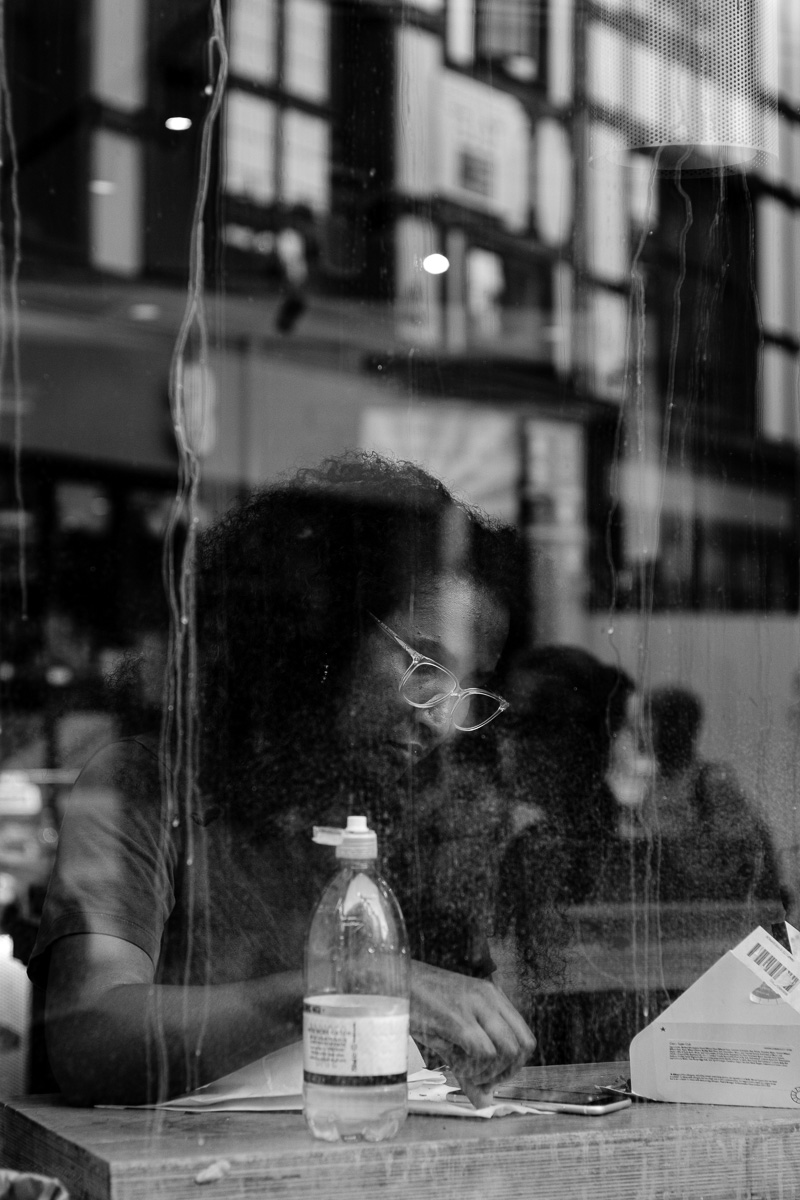
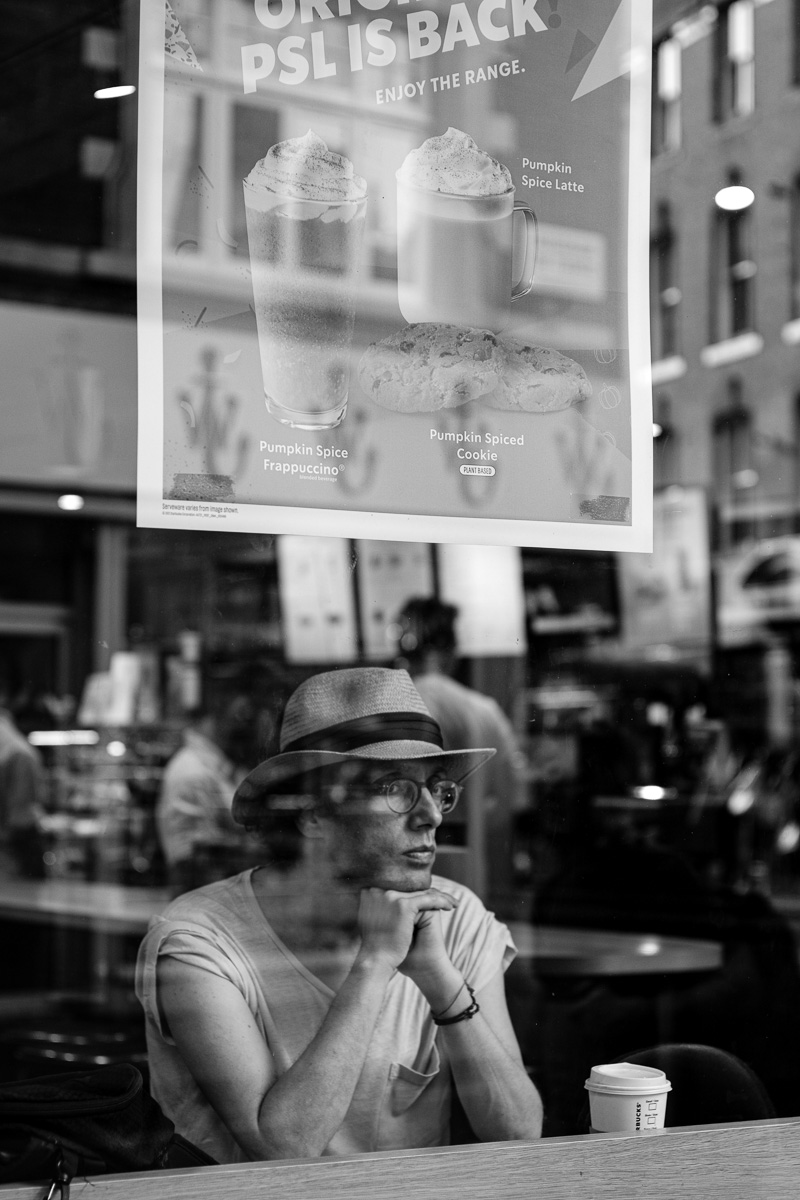
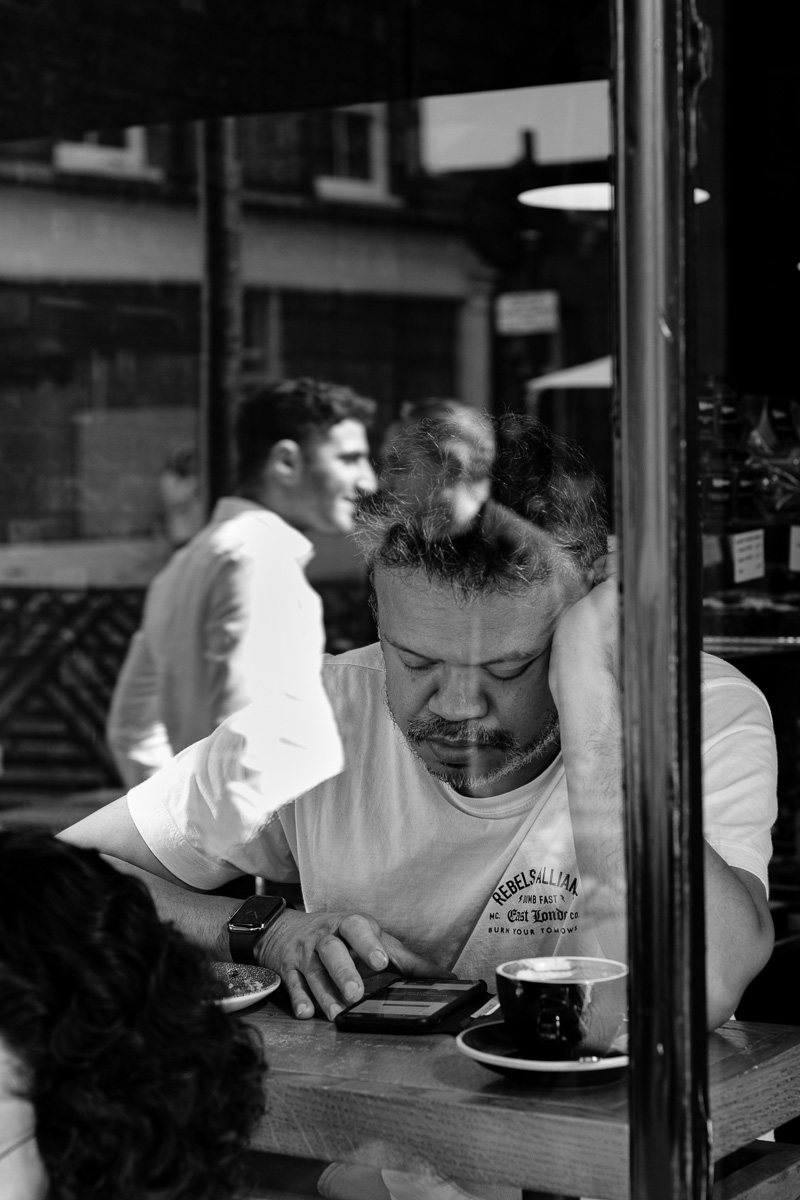
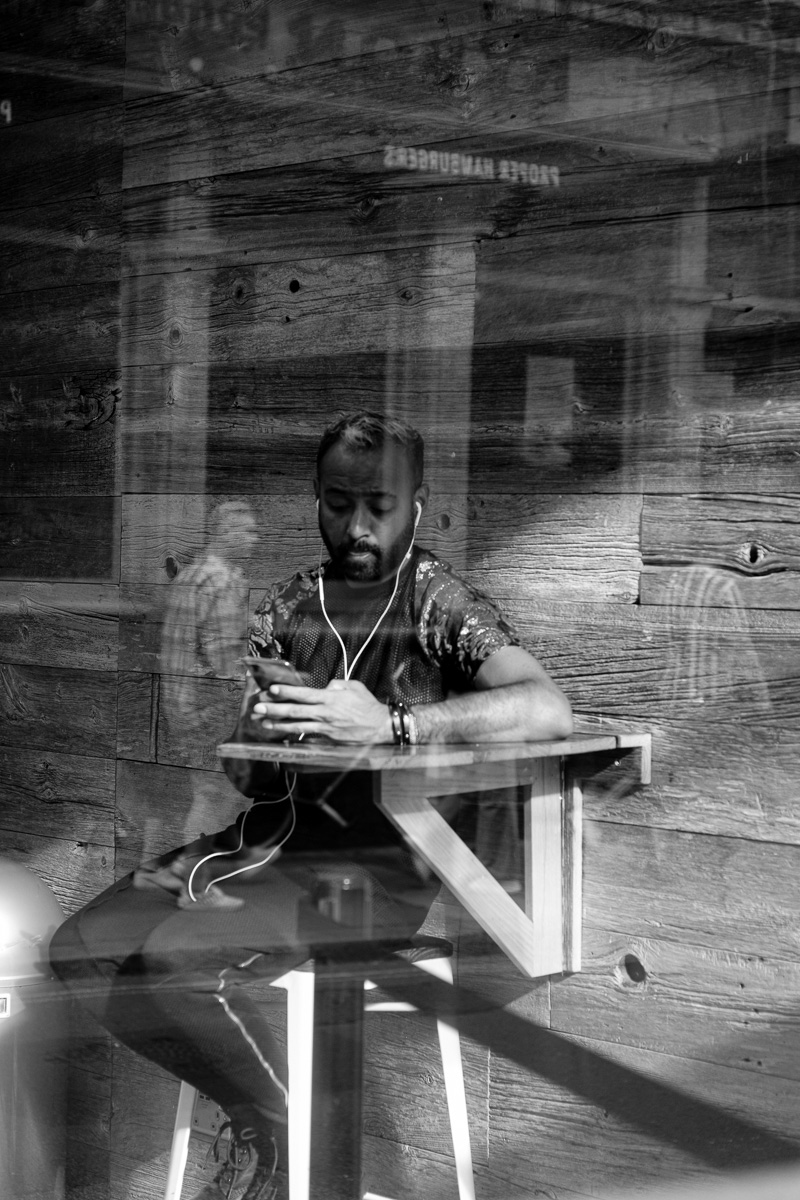
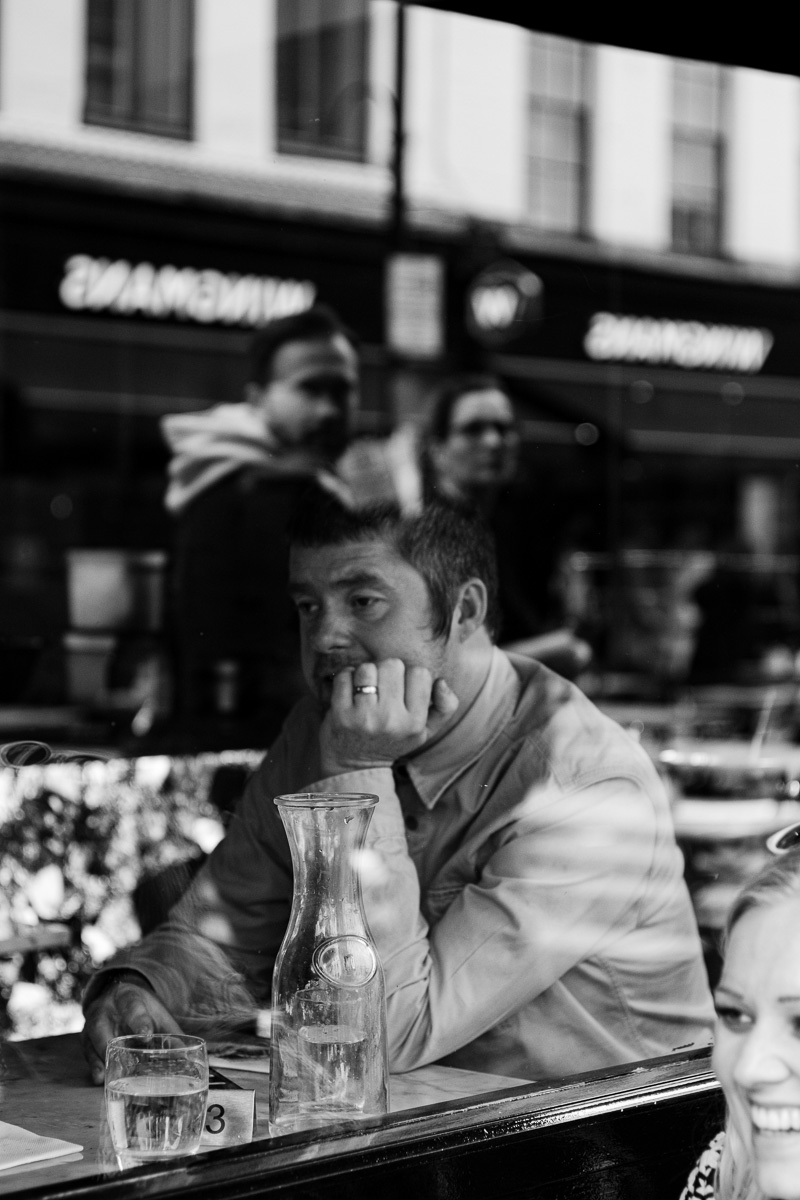
Lull has this accompanying text by Dewachi.
Still… Be still… My Love… My heart… Be still…
I will… With all my might… With all my will…
Pain shall pass… Clouds shall pass…
They follow their compass… So we will…
In love you fall… Out of love you fall…
No friends to call… Still, you stand tall.
These photographs of models and shop dummies seem to represent people stripped bare by corrosive emotion. I get the sense that if we stand tall – as tall as a tree perhaps – these things will pass if we feel our connectedness with others.

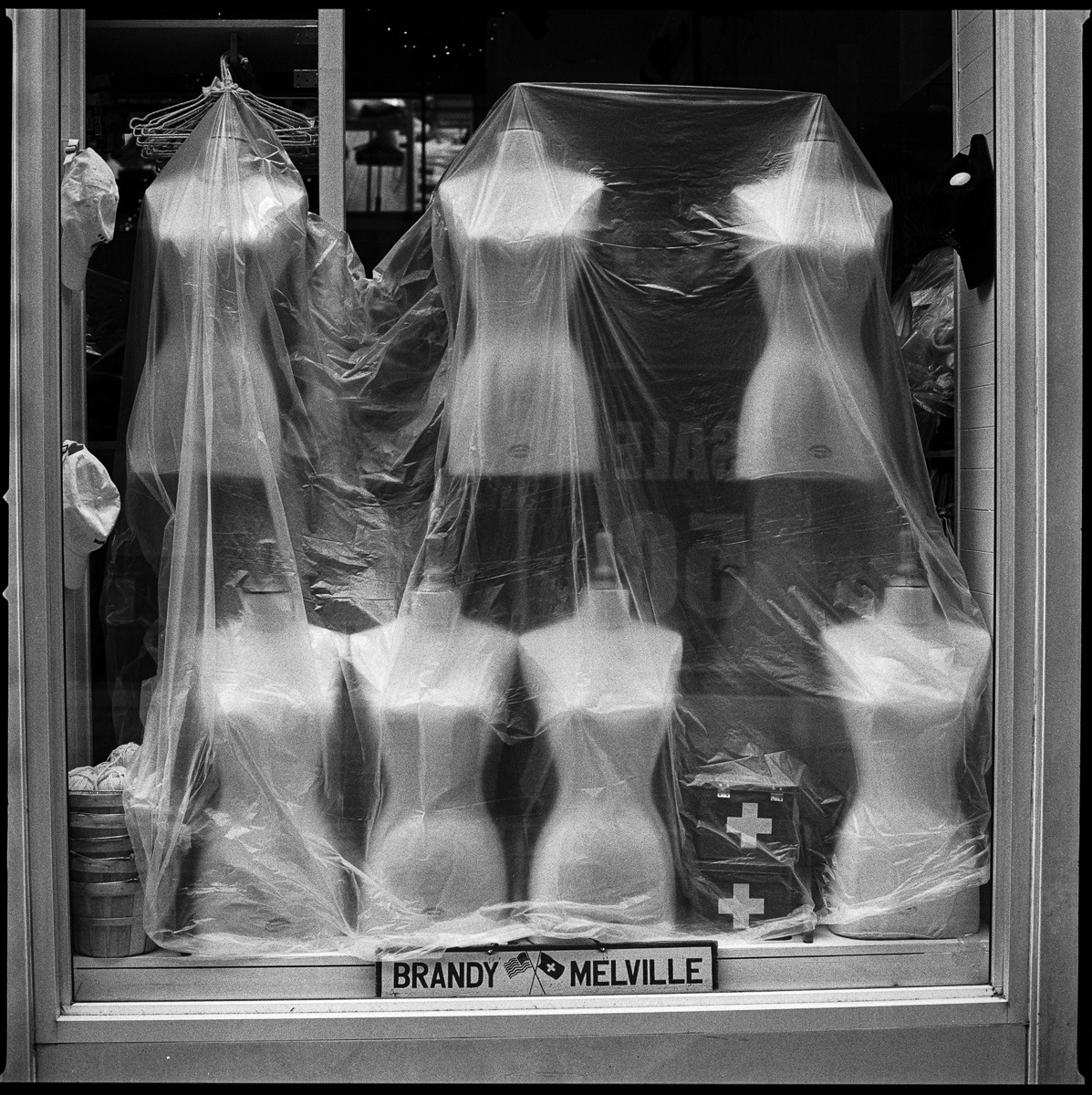
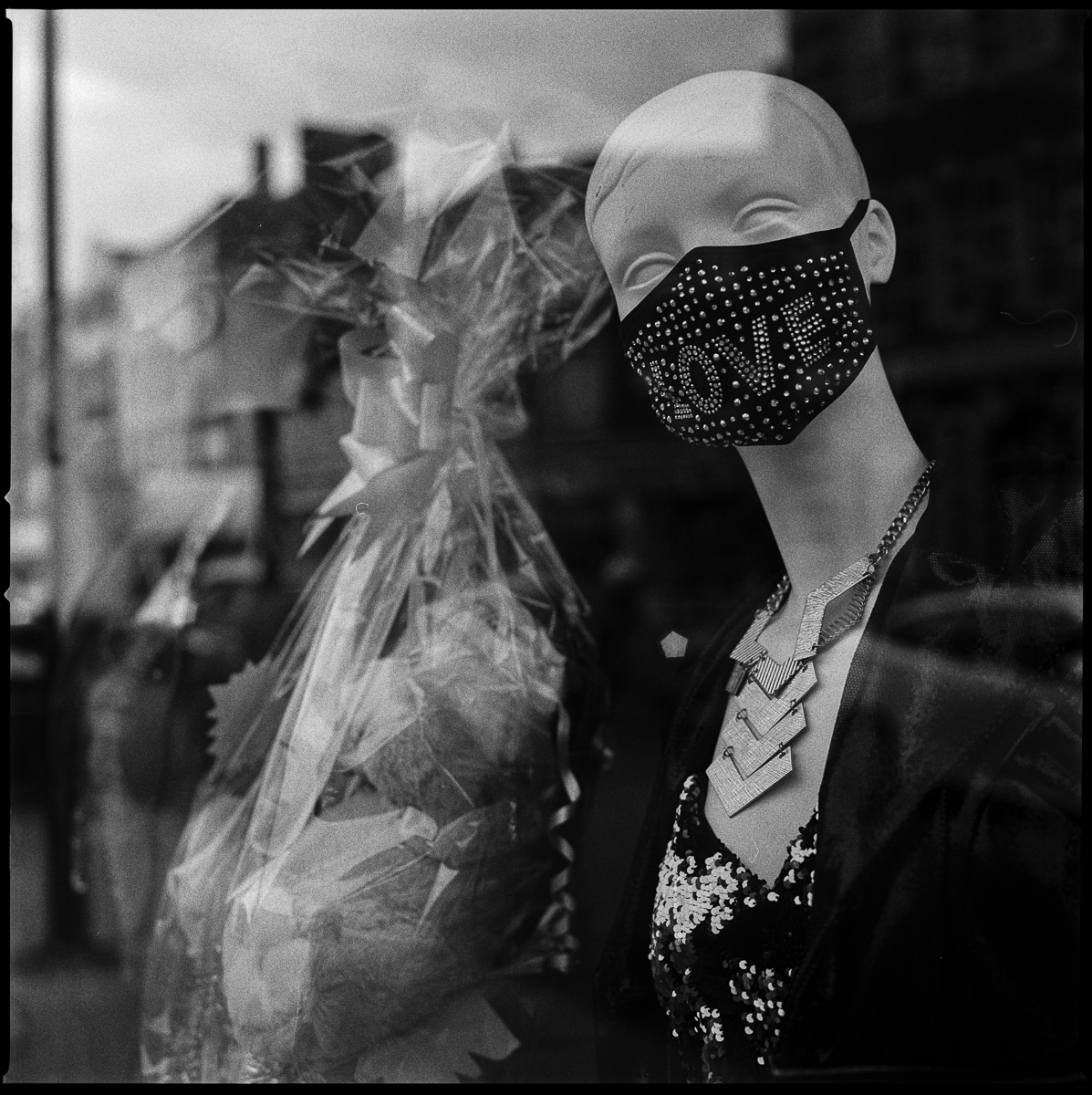
First published on International Times, on 15 January 2022

